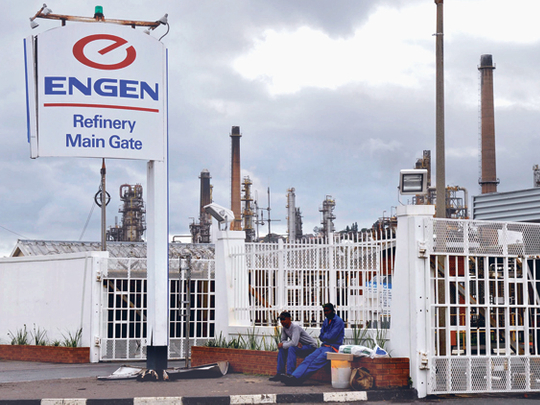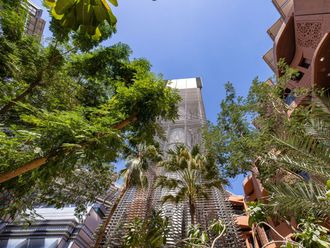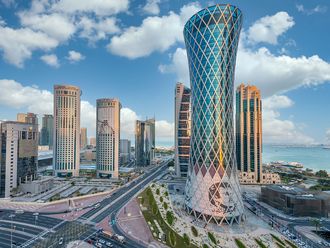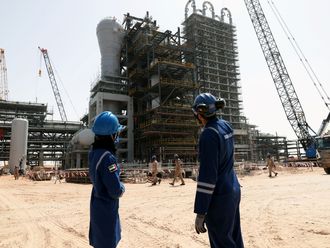
Johannesburg : South Africa is determined to build new refineries to replace dirty and ageing plants and reduce its reliance on imports, but cheap fuel imports and rising costs may delay the projects.
The country plans to build nearly 500,000 barrels per day of new refining capacity by 2017 to meet fast growing demand for gasoline diesel, liquefied petroleum gas and jet fuel, which is estimated to rise 3 per cent a year over the next decade.
National oil firm PetroSA proposed the country spend around $9-$10 billion (Dh33-Dh36.7 billion) on a 400,000 bpd refinery, and petrochemicals group Sasol is working on Mafutha, an 80,000 bpd coal-to-liquids plant, further expected to boost supply.
New export-led refineries in Asia and overcapacity in other regions, such as Europe and the United States, are weakening the business case for new projects, but South Africa insists that the refineries need to be built.
Kill the argument
"We need to kill this argument," Nelisiwe Magubane, director general at the energy ministry, said.
"Both the PetroSA refinery and Mafutha will happen, because as the country grows we will need the liquid fuels, but timelines might change depending on the needs of our country."
South Africa has stressed it would like to reduce its reliance on imported fuel, now estimated at up to 3 billion litres a year, help its balance sheet and benefit from the jobs a large construction site would generate.
The PetroSA project at the Coega industrial zone alone is expected to create up to 18,500 permanent jobs, add 0.5 per cent to the country's GDP once commissioned and save South Africa 18.5 billion rand (Dh9.1 billion) a year due to reduced imports.
Half of the product is expected to be sold to the rest of the southern African region, where demand is rising as economies grow and a middle class emerges.
Using coal
The Mafutha CTL plant is still in the pre-feasibility stage, but using coal, a feedstock widely available in South Africa, Sasol believes the cost-benefits analysis for it is strong.
But with a $10 billion price tag, Sasol said it would not be able to proceed unless the government shares the pain.
"The cost of refining coal is much more expensive than to refine crude oil and the only advantage coal has is that it's much cheaper, so Sasol will have to weigh the challenges," said David Sineke, researcher at oil company Engen.










